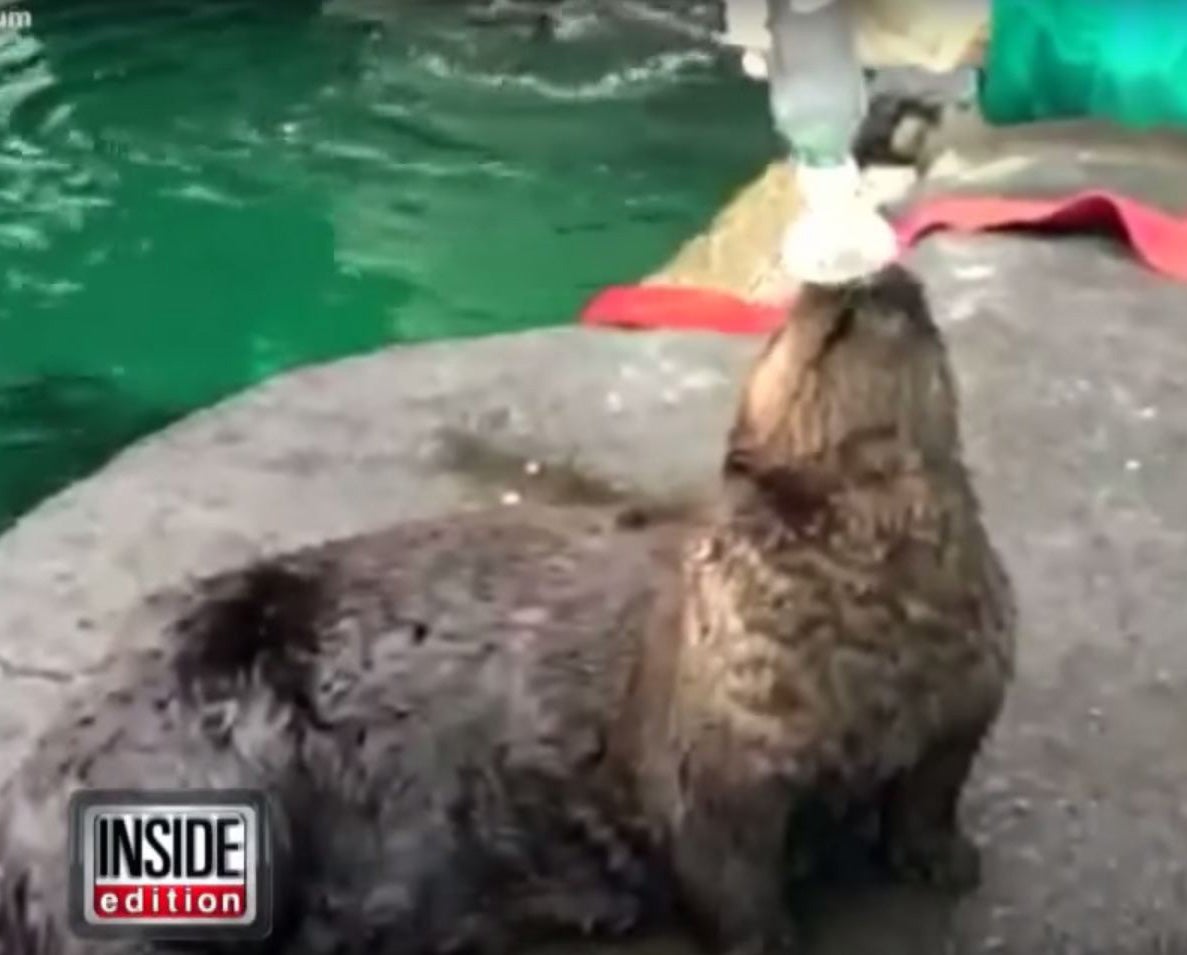US aquarium trains otter to use inhaler after smoke from Seattle wildfires gives it asthma
Mishka is learning how to use the inhaler after zoo vets noticed she was struggling to breathe

Your support helps us to tell the story
From reproductive rights to climate change to Big Tech, The Independent is on the ground when the story is developing. Whether it's investigating the financials of Elon Musk's pro-Trump PAC or producing our latest documentary, 'The A Word', which shines a light on the American women fighting for reproductive rights, we know how important it is to parse out the facts from the messaging.
At such a critical moment in US history, we need reporters on the ground. Your donation allows us to keep sending journalists to speak to both sides of the story.
The Independent is trusted by Americans across the entire political spectrum. And unlike many other quality news outlets, we choose not to lock Americans out of our reporting and analysis with paywalls. We believe quality journalism should be available to everyone, paid for by those who can afford it.
Your support makes all the difference.An American aquarium has trained at otter to breathe using an inhaler after it was diagnosed with asthma.
One-year-old Mishka is thought to be the first sea otter to receive such a diagnosis, after she started having trouble breathing because of the smoke from Seattle's recent wildfires.
Dr Lesanna Lahner, who first diagnosed Mishka at Seattle Aquarium, told local TV station King-5 that the otter's training with the inhaler had been a success.
She said: "We want to make this as fun as possible. Any kind of medical behavior you're training, you want to make sure it's nice and positive."
Sara Perry, Mishka’s trainer, is using food to teach the animal to push her nose on the inhaler and breathe deeply. The medicine inside is the same as that used for asthmatic humans.
According to the Seattle Aquarium, native otters became extinct in Washington state in 1910 due to the maritime fur trade but otters from Alaska were reintroduced in 1969 and 1970.
Many of the 59 otters introduced soon died and scientists now believe that all the wild otters alive in the state today may be descended from just 10 animals.
This inbreeding increases the risk of the animals developing certain genetic conditions and being unable to fight off changes in their environments.
Dr Peter Rabinowitz, an environmental and occupational health professor at the University of Washington, said health problems developing in the animal kingdom could demonstrate a problem with the environment.
He told King-5: "More and more there starts to be this concept of what we're calling "One Health," which really is that there's a connection between the health of people and the health other species.
"Sometimes those species can tell us there is a problem in the environment that could be important for human health as well."
Join our commenting forum
Join thought-provoking conversations, follow other Independent readers and see their replies
Comments